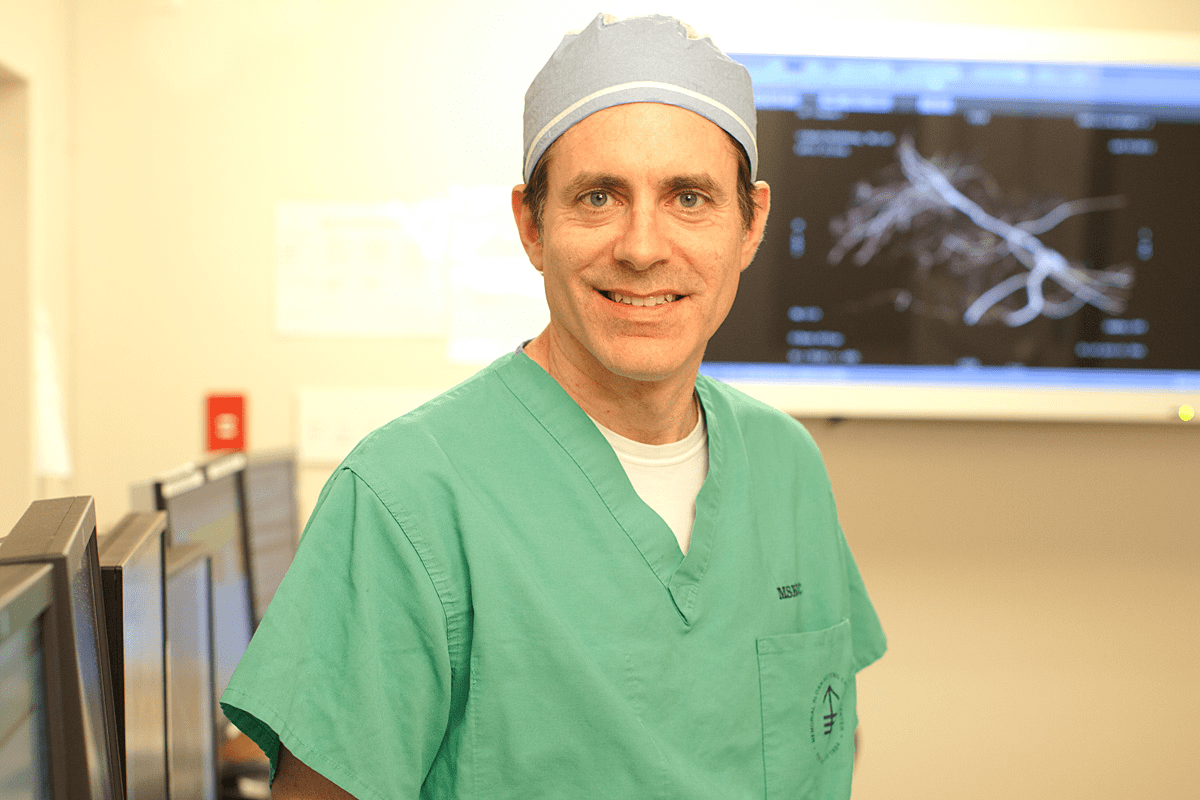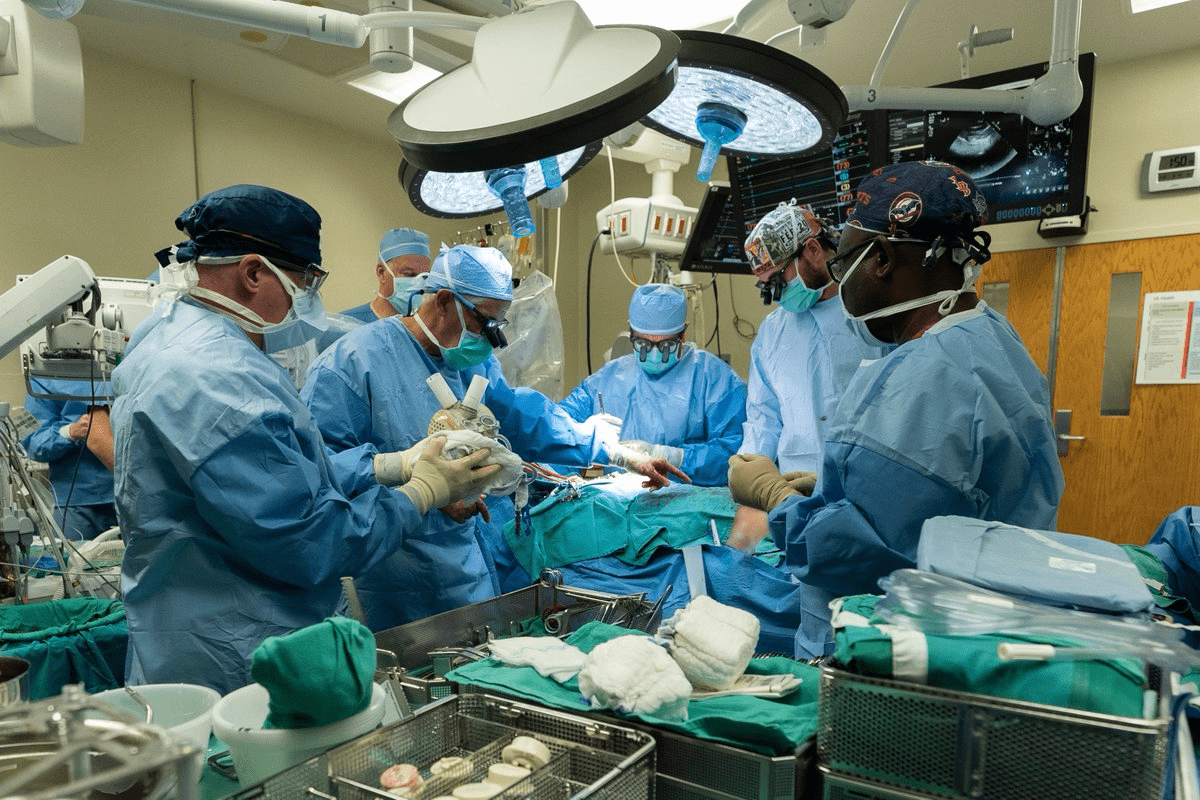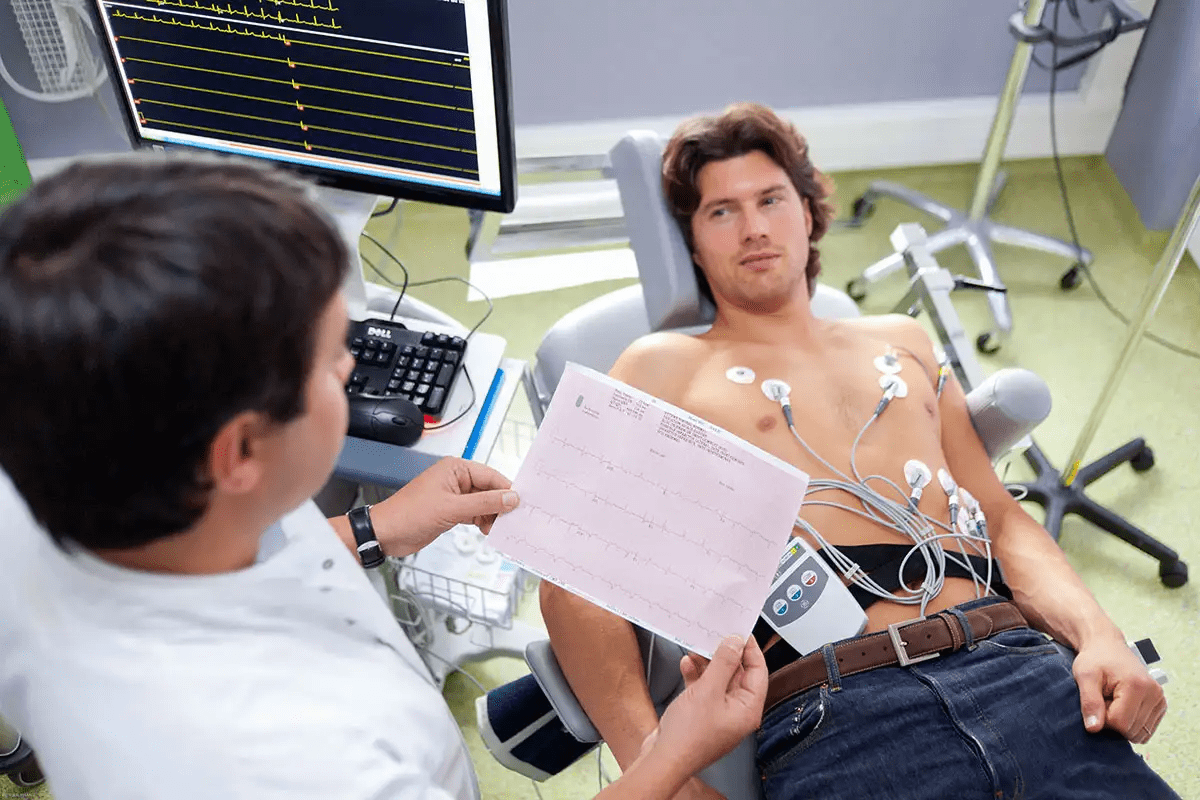Last Updated on November 27, 2025 by Bilal Hasdemir

Can You Recover from a Brain Tumor? Understanding the Healing Process
Getting a brain tumor diagnosis can feel overwhelming, but understanding recovery can make the journey less frightening. Many patients ask, can you recover from a brain tumor? The answer depends on several factors ” including the type of tumor, its location, how advanced it is, and how your body responds to treatment.
At Liv Hospital, we believe every patient deserves personalized, expert care. Recovery involves more than just treatment; it’s also about emotional support, rehabilitation, and ongoing monitoring. Our specialists create tailored treatment plans that may include surgery, radiation therapy, or medication to help patients regain strength and quality of life.
With early diagnosis, modern medical technology, and a strong care team, many patients are able to recover and lead fulfilling lives after treatment. Liv Hospital is dedicated to guiding patients and families through every step of recovery with compassion and hope.
Key Takeaways
- Recovery from a brain tumor is possible with proper care and treatment.
- The type, location, and stage of the tumor affect recovery outcomes.
- Cognitive decline is a common complication that impacts quality of life.
- Personalized treatment plans support overall well-being.
- Understanding your diagnosis is key to navigating the recovery process.
Understanding Brain Tumors and Recovery Potentials
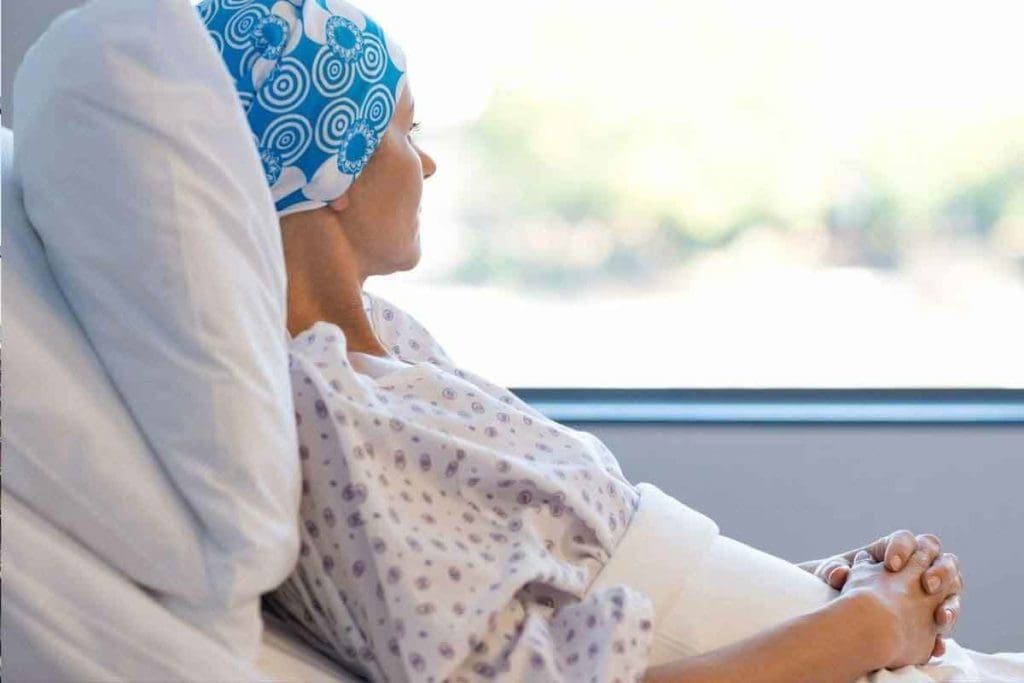
It’s key to know about brain tumors to understand recovery chances and the best treatment. Brain tumors are mainly divided into benign and malignant types. Each type has its own traits and recovery possibilities.
Types of Brain Tumors and Their Characteristics
Benign tumors, like meningiomas and pituitary adenomas, grow slowly and might have a better outlook. They are usually contained and don’t spread to the brain, making surgery easier. On the other hand, malignant tumors, such as glioblastoma, grow fast and spread, needing quick and strong treatment.
The type, grade, and where the tumor greatly affect recovery. Tumors in key brain areas can be harder to recover from. The grade of the tumor, showing how much it looks like normal cells, is also very important for predicting outcomes.
Key Factors That Influence Recovery Outcomes
Several things affect how well a brain tumor patient can recover. These include the tumor’s type and grade, its location, and the patient’s health and age. The success of treatments like surgery, radiation, and chemotherapy also matters a lot.
- The type and grade of the tumor, which affect its aggressiveness and response to treatment.
- The tumor’s location can impact the feasibility of surgical removal and the risk of damage to surrounding brain tissue.
- The patient’s overall health, age, and resilience influence their ability to recover from treatment.
Knowing these factors is vital for setting realistic hopes and creating a treatment plan that fits the patient’s needs.
Can You Recover from a Brain Tumor? Realistic Expectations
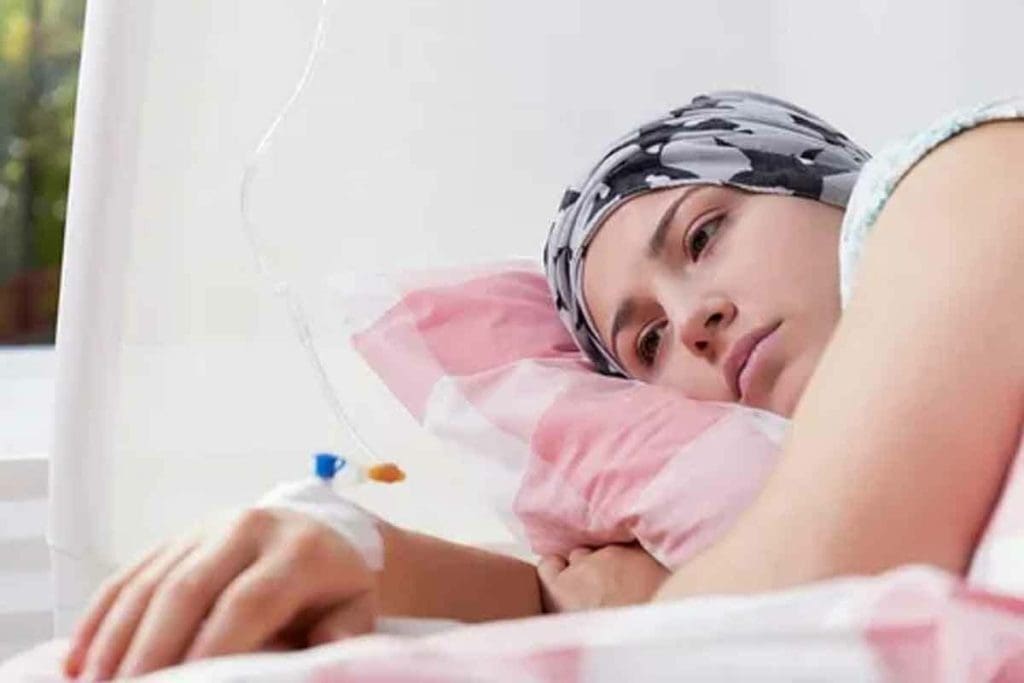
Recovery from brain tumors is complex and varies a lot. It depends on the tumor’s type, size, and where it is. Also, the patient’s health and how well they respond to treatment play big roles.
Defining “Recovery” in Brain Tumor Context
For those with brain tumors, “recovery” can mean different things. Some might get back to how they were before, while others might have to adjust to new challenges. We help our patients set goals and create plans to improve their quality of life.
Early, non-cancerous tumors can often be cured. Most patients can go back to their normal lives. But the recovery can be affected by how well the treatment works and any lasting symptoms.
The Spectrum of Recovery Outcomes
Recovery for brain tumor patients can be very different. Some might fully recover, while others might face ongoing challenges. Knowing about the range of outcomes helps set realistic hopes.
| Tumor Type | Typical Recovery Outcome | Factors Influencing Recovery |
| Benign Tumors (e.g., Meningioma) | Often curable with surgery; most patients resume normal life | Tumor size, location, and surgical success |
| Malignant Tumors | Variable; may require ongoing treatment and management | Tumor grade, response to treatment, and overall health |
Understanding what affects recovery and setting realistic hopes helps patients and their families. Our team is dedicated to giving full support and care. We aim to help patients get the best possible results.
Survival Rates and Prognosis by Tumor Type
The outlook for brain tumor patients depends a lot on the type of tumor. Knowing the survival rates for benign and malignant tumors helps patients and their families plan for the future. It also aids in making informed decisions about care.
Benign Tumor Outcomes
Benign brain tumors, like meningioma and pituitary adenoma, usually have a better outlook. These tumors grow slowly and can often be cured with surgery or other treatments. Studies show that the 5-year survival rate for benign brain tumors is quite high.
Meningiomas, which are mostly benign, have a 5-year survival rate of about 85-95% after surgery. Pituitary adenomas also have a high survival rate. Most patients can expect a normal life expectancy after treatment.
Malignant Brain Tumor Statistics
Malignant brain tumors, like glioblastoma, are much harder to deal with. They need intense treatments, including surgery, radiation, and chemotherapy. The outlook for these patients is generally worse than for those with benign tumors.
The SEER Cancer Statistics show that the 5-year survival rate for all malignant brain tumors is about 35%. Glioblastoma, being very aggressive, has a very poor prognosis. Its 5-year survival rate is less than 7%.
Tumor Type
| 5-Year Survival Rate | |
| Meningioma (Benign) | 85-95% |
| Pituitary Adenoma (Benign) | 90-100% |
| Glioblastoma (Malignant) | <7% |
| All Malignant Brain Tumors | around 35% |
Knowing these statistics helps patients and their families have realistic hopes. It also helps them make informed decisions about their treatment plans.
Treatment Approaches and Their Recovery Implications
It’s key for patients to know about different treatment options for brain tumors. These options include surgery, radiation, and chemotherapy. Each one has its own impact on recovery.
Surgical Interventions and Recovery Timelines
Surgery is a main way to treat many brain tumors. The aim is to take out as much tumor as possible without harming the brain. Recovery times can differ a lot based on the surgery, where the tumor is, and the patient’s health.
Patients usually need a few weeks to several months to recover. Comprehensive rehabilitation and care plans play a big role in how well they do. Our team creates care plans that meet each patient’s needs for the best recovery.
| Surgical Intervention | Typical Recovery Time | Factors Influencing Recovery |
| Craniotomy | 6-8 weeks | Extent of tumor removal, patient age, and overall health |
| Biopsy | 1-2 weeks | Minimally invasive technique, patient’s health condition |
| Tumor Resection | 8-12 weeks | Tumor location, extent of resection, and post-operative care |
Radiation and Chemotherapy Effects on Recovery
Radiation and chemotherapy are used alone or with surgery to treat brain tumors. These treatments can slow tumor growth but can also affect recovery. Side effects include tiredness, changes in thinking, and hair loss.
We focus on caring for the whole patient, not just the tumor. Knowing how radiation and chemotherapy work helps us support patients better. This way, we can improve their recovery chances.
We take a complete care approach to help patients with brain tumors. Our goal is to offer top-notch healthcare and support for patients worldwide.
Memory Loss After Brain Tumor Surgery: What to Expect
Many patients face memory loss after brain tumor surgery. This can greatly affect their quality. Knowing about this memory loss, how common it is, and what can help in recovery is key.
Prevalence and Types of Memory Impairment
Memory loss after brain tumor surgery is more common than people think. Studies show many patients face some memory loss after surgery. This loss can range from trouble making new memories to forgetting familiar things.
Types of Memory Impairment:
- Short-term memory loss
- Difficulty in learning new information
- Challenges in recalling familiar names and events
Factors That Influence Memory Recovery
How much and how fast memory recovers after surgery depends on several things. These include the tumor’s location and size, the surgery method, the patient’s health, and any extra treatments like radiation or chemotherapy.
Cognitive rehabilitation is key in helping patients get back their memory and thinking skills. It includes memory exercises, training, and ways to cope with memory loss.
Every patient’s recovery is different. Understanding what affects memory recovery and using the right rehabilitation can help improve cognitive function and life quality.
Speech and Cognitive Challenges During Recovery
Patients recovering from brain tumor treatment face speech and cognitive hurdles. These challenges can greatly affect their quality of life and daily activities.
Common Communication Difficulties
Brain tumor survivors often struggle with communication. They might have speech challenges like dysarthria (trouble speaking clearly) and aphasia (trouble finding words or understanding language). Our speech therapy helps them regain their communication skills.
Some patients also face cognitive challenges. These include memory, attention, and problem-solving issues. These can make daily tasks hard and impact their independence.
| Communication Difficulty | Description | Rehabilitation Approach |
| Dysarthria | Difficulty articulating words | Speech Therapy |
| Aphasia | Difficulty finding the right words or understanding language | Speech Therapy, Cognitive Rehabilitation |
| Cognitive Impairment | Difficulties with memory, attention, and problem-solving | Cognitive Rehabilitation, Neuropsychologist-guided Training |
Cognitive Rehabilitation Approaches
Cognitive rehabilitation is key in recovery. We use various cognitive rehabilitation methods. These include neuropsychologist-guided training and computer programs to boost cognitive functions and independence.
Our team creates personalized plans for each patient. This helps address their specific needs and goals. Adding cognitive rehabilitation to the treatment plan improves recovery outcomes.
Comprehensive rehabilitation is vital for brain tumor patients. It tackles speech and cognitive challenges. This improves their quality of life and helps them return to daily activities.
Physical Rehabilitation Following Brain Tumor Treatment
Rehabilitation is key for those who have had brain tumor treatment. It helps restore physical function and improves life quality. Our programs aim to support patients in achieving the best recovery outcomes.
Motor Function Recovery Strategies
Physical exercise and rehabilitation can boost motor function and health. Our programs offer a variety of therapies and exercises for each patient. Key strategies include:
- Personalized physical therapy sessions to address specific motor function challenges
- Exercises designed to improve strength, flexibility, and range of motion
- Occupational therapy helps patients regain the ability to perform daily activities
Balance and Coordination Therapy
Balance and coordination are vital in physical rehabilitation after brain tumor treatment. Our therapists create customized exercise programs to enhance these skills. Techniques include:
- Balance training using specialized equipment such as balance boards
- Coordination exercises that challenge the patient’s ability to perform complex movements
- Gait training to improve walking patterns and stability
We use these strategies to help patients improve their physical health and life quality. We aim to empower them to regain independence and return to their normal activities.
Quality of Life After Brain Tumor Treatment
Recovering from a brain tumor is more than just living longer. It’s about living well. Doctors aim not just to extend life but also to make it better.
Improving quality of life means helping patients get back to normal. “The goal is to help patients regain their independence and return to their normal activities as much as possible,” says a leading oncologist.
Measuring and Improving Quality of Life
Quality of life is about physical health, emotional well-being, and social life. We use special tools and listen to patients to meet their needs. This helps us improve their quality.
Research shows that quality of life can be greatly improved with the right support. This includes physical, occupational therapy, and mental health support. Tailoring care to each patient’s needs helps them live better.
Returning to Work and Daily Activities
Helping patients go back to work and daily life is key. We offer vocational rehabilitation to find out what they can do. This helps them plan to return to work.
Going back to daily activities helps patients feel normal again. We guide them on managing any challenges. This way, they can fully enjoy their lives.
“Rehabilitation is not just about recovering from the treatment itself, but about regaining the ability to live life to the fullest,” notes a rehabilitation specialist.
Through detailed rehabilitation and support, we help brain tumor patients thrive. They can live better, return to work, and enjoy their daily lives.
The Role of Support Systems in Recovery
Recovering from a brain tumor is easier with help from family, caregivers, and professional networks. This support is key to a successful recovery. At our institution, we know how important a strong support network is for better patient outcomes and quality of life.
Family and Caregiver Support
Family and caregivers are essential during recovery. They offer emotional support, help with daily tasks, and ensure patients follow their treatment plans. Effective communication between patients, families, and healthcare providers is vital to meet everyone’s needs.
Caregivers need guidance on how to best support their loved ones. We offer resources and counseling to help them manage their roles. This includes education on the patient’s condition, managing treatment side effects, and navigating the healthcare system.
Professional Support Networks
Professional support networks are also critical for recovery. These include neurologists, oncologists, rehabilitation specialists, and mental health professionals. Multidisciplinary care teams work together to meet the complex needs of brain tumor patients, ensuring all aspects of care are coordinated.
Access to advanced care and multidisciplinary care pathways can greatly improve recovery outcomes. Our institution offers counseling, support groups, and rehabilitation programs. These services help patients and their loved ones face the challenges of recovery.
| Support Service | Description | Benefits |
| Counseling Services | Individual and group counseling for patients and families | Emotional support, coping strategies |
| Support Groups | Regular meetings for patients and caregivers to share experiences | Community building, shared understanding |
| Rehabilitation Programs | Physical, occupational, and speech therapy tailored to the patient’s needs | oved function, independence |
Brain Tumor Remission and Long-term Monitoring
It’s important for patients and their caregivers to understand brain tumor remission and long-term monitoring. Remission is a big win, but it’s key to know what it means for your health long-term. We need to take steps to keep it that way.
Understanding Remission vs. Cure
Brain tumor remission is possible, but “cure” is more complicated. Remission means the tumor is gone, but it might come back. We help our patients understand the difference and what it means for their care.
For aggressive brain cancers, a true cure is rare. Instead, we focus on managing the disease and keeping the quality of life high. Remission means staying alert with regular check-ups and tests.
Follow-up Protocols and Surveillance
Long-term monitoring is key for brain tumor patients in remission. We have a plan for regular MRI scans, exams, and tests to watch for recurrence. Our team creates a plan for each patient to catch any problems early.
The type of tumor, treatment, and patient risk factors decide how often and what kind of follow-ups are needed. Being proactive helps us catch issues early, improving life quality.
We care for our patients long-term, covering their physical, emotional, and informational needs. Following up on protocols helps patients have a better outcome.
In summary, while remission is a big win, it’s just the start. With the right support and care, patients can face long-term challenges and keep a good quality of life.
Conclusion: Navigating the Brain Tumor Recovery Journey
Recovering from a brain tumor is a complex and highly individualized process. At our institution, we understand that navigating this journey requires complete care and support. Our team uses a multidisciplinary approach to tackle the unique challenges and opportunities of each patient’s recovery journey.
We combine advanced medical treatments with personalized rehabilitation strategies. This empowers our patients to achieve the best possible outcomes and improve their quality of life. Our team is dedicated to providing top-notch healthcare, focusing on supporting patients throughout their brain tumor recovery journey.
Effective recovery navigation involves treating the tumor and addressing its physical, cognitive, and emotional impacts. We work closely with our patients and their families to develop tailored care pathways. This ensures they receive the support needed to navigate their recovery successfully.
FAQ
Can you recover from a brain tumor?
Yes, it’s possible to recover from a brain tumor. But the outcome depends on the tumor’s type, location, and stage. Our team creates personalized treatment plans to help you recover well.
What are the differences between benign and malignant brain tumors?
Benign tumors, like meningiomas, grow more slowlmoreyananda baook. Malignant tumors, such as glioblastoma, grow fast and need quick treatment. Knowing these differences helps set realistic hopes.
What does “recovery” mean for brain tumor patients?
Recovery means different things to different people. For some, it’s going back to how they were before. For others, it’s learning to live with new limits. We help patients set their own goals and plan their recovery.
How do treatment approaches affect recovery?
Treatments like surgery, radiation, and chemotherapy affect recovery differently. Our team focuses on your whole health, not just the tumor.
Is memory loss common after brain tumor surgery?
Yes, memory loss is common after surgery. Knowing about memory loss and how to recover from it helps manage expectations.
Can cognitive rehabilitation improve outcomes?
Yes, cognitive rehabilitation can greatly improve outcomes. Our institution offers various services to support patients in their recovery.
How can physical rehabilitation help after brain tumor treatment?
Physical rehabilitation helps patients regain motor function and improve balance. Our programs include different therapies and exercises.
Can brain tumors be cured?
Cure rates vary by tumor type. Benign tumors can often be cured, but malignant tumors may need ongoing care. It’s important to understand the difference between remission and cure.
How can support systems enhance recovery outcomes?
Family, caregivers, and professional networks are key to recovery. We encourage patients to use these resources and offer counseling and support groups.
What is the role of follow-up protocols in brain tumor recovery?
Follow-up protocols are vital for monitoring for recurrence. Our team helps develop these plans with patients.
Can you recover from glioblastoma?
Glioblastoma is aggressive and requires intense treatment. While outcomes vary, our team is dedicated to providing the best care possible.
How can quality of life be improved after brain tumor treatment?
We help patients improve their quality of life by understanding their needs. This includes support for returning to work and daily activities.
References
- Coomans, M. B., et al. (2019). Treatment of cognitive deficits in brain tumour patients. Current Treatment Options in Oncology, 20(12), 97. https://pmc.ncbi.nlm.nih.gov/articles/PMC6824580/



